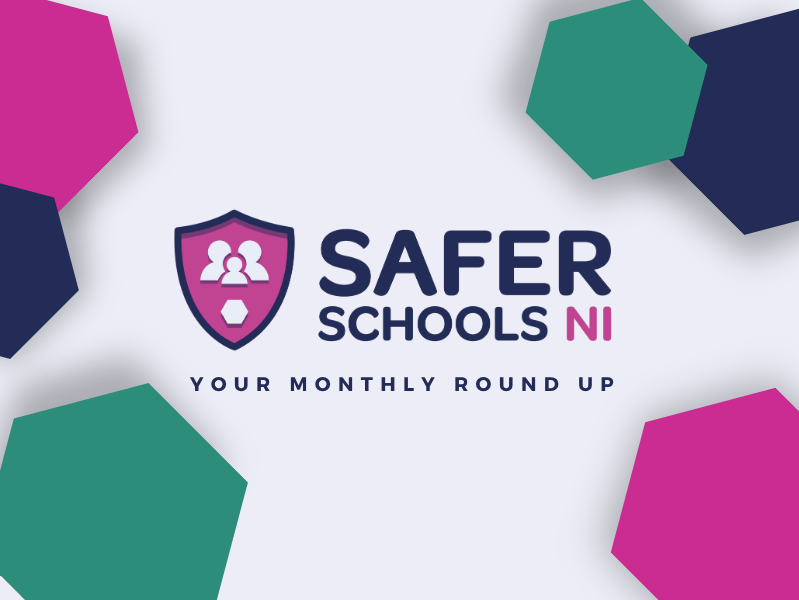Last Updated on 22nd April 2022
Read the script below
Hello and welcome to Safeguarding Soundbites – the podcast that’s perfect for getting prompt and precise safeguarding news on-the-go. You’ll also be hearing from me, Colin Stitt, Head of Safer Schools NI, about the latest online safety updates from our safeguarding team here at Ineqe Safeguarding Group.
I hope you all had a great easter, had plenty of chocolate and are now feeling refreshed and ready to go!
Many of us will have been posting the highlights of our easter break activities on social media – and, if we’re honest, we’re usually just posting the ‘best bits’, rather than the moments we were in our pjs stuffing our faces with easter eggs, or was that just me? But on social media platform BeReal, it’s a very different experience. Instead of curating careful snapshots showing the best bits of our lives, users are encouraged to show the more realistic day-to-day routines we all have. The app sends notifications at random times of the day and users are given a two-minute window to take and post a photo of what they’re up to. You can learn more about BeReal and find out what our safeguarding experts think of the platform on saferschoolsni.com.
We’ve also been taking a look at Finstas – the nickname given to Instagram accounts that aren’t the users primary or public account. The name comes from the combination of ‘fake’ and ‘Instagram’ and is an account often shared with only a select group of friends or followers. But why are people creating these secondary hidden accounts? Visit saferschoolsni.com to read our article, outlining what Finstas are, why young people are using them and what some of the safeguarding concerns are surrounding them.
In the news, as the Online Safety Bill reaches its second reading in Parliament, the NSPCC has spoken out, urging the government to go further with the Bill in order to tackle grooming and child abuse. They want further clampdowns on ‘breadcrumbing’ -when offenders use social media to form networks, advertise sexual interest in children and signpost to child abuse content hosted on other sites. You can find out more about what the Online Safety Bill is and what it would change for safeguarding children online on our website.
Apple have announced that they will soon be launching a new safety feature in the UK that, when enabled, will scan photo messages sent and received by children for nudity. Using AI technology, the feature will automatically blur photos if any nudity is detected and warn that the message contains sensitive content. If a child is sending a photo and nudity is detected, the feature will encourage the child not to send the message and suggest they message a grown-up for support.
A union of teachers have reported that children are accidently coming across far-right materials online and that access to social media and smartphones are leaving them at risk of being exposed to extremist material. At a conference for the National Association of Schoolmasters Union of Women Teachers, there were calls for more to be done to address the problem of extremism in schools and for urgent government-level action to be taken.
In Northern Ireland more than 300 cases of suspected child abuses and neglect were referred by the NSPCC to the PSNI and other agencies last year. This equates to almost one referral per day with neglect the most common reason for referral. The NSPCC has stated that the independent review of the children’s social care system that began in February 2022 presents a golden opportunity to address the failings identified in the system and strengthen it.
Ineqe’s Chief Executive Officer Jim Gamble has spoken out about the disturbances in Derry/Londonderry on Easter Monday and called for dissidents who use young people to carry out acts of violence to be charged with child exploitation, adding that young people are used as ‘cannon fodder’ as they are less likely to be punished in the same way as an adult. Video footage from the dissident easter parade showed police being attacked with petrol bombs in what police have called a premediated attack.
That’s everything for this week’s Safeguarding Soundbites – I’ll be back next week with more news and updates. Remember you can find all our articles and further resources at saferschoolsni.com. If you’ve enjoyed today’s podcast, we’d love for you to share it with friends, family and colleagues. You can also get in touch with us via our website or on our social media pages -just search for Safer Schools NI on Facebook and Twitter. Thanks for listening and I’ll be back next week!
Join our Safeguarding Hub Newsletter Network
Members of our network receive weekly updates on the trends, risks and threats to children and young people online.
Who are your Trusted Adults?
The Trusted Adult video explains who young people might speak to and includes examples of trusted adults, charities and organisations.
Pause, Think and Plan
Use our video for guidance and advice around constructing conversations about the online world with the children in your care.







